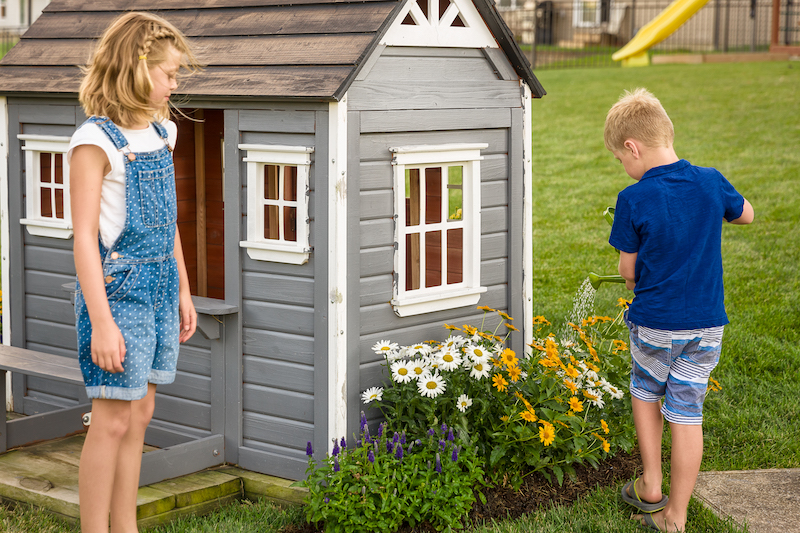Newly planted sunflowers need damp conditions, especially during germination, but established sunflower plants need about one inch of water per week. Underwatered sunflowers will not grow large or bloom, and the plants may droop and appear wilted. Overwatered sunflowers are susceptible to root rot. Finding the right water balance is essential, but it’s also easy. Sunflowers, or Helianthus, are native to North America, so these plants quickly acclimate. Properly watered sunflowers grow a robust root system that will sustain them throughout the warm summer.

How To Tell If Sunflower Needs Watered
Sunflowers will let you know when they are dry and need water. Inspecting the soil will also help you determine if the plant needs water. Leaves wilting, drooping, and turning yellow and brown are signs of an underwatered sunflower. When these signs are visible, the plant is dehydrated, so try to water before the plant wilts and droops, but water immediately if you notice these indicators. Dry and cracked soil is another sign that it’s time to water. If the soil is dry, then the roots are dry. Sunflowers can be watered too much, so be mindful of recent rainfall and adjust your watering routine accordingly.
How Often To Water Sunflower
Newly planted sunflowers need damp conditions for the first week. Routinely water the plant after planting to keep the soil moist but not soggy. Plants grown from seed also need wet conditions for the seeds to germinate.
Established sunflower plants need about one inch of water each week. Plants grown in dry climates may need water more often. Monitor the plants and increase watering during a drought. Most sunflower plants have a deep root system that makes them drought tolerant, but overly dry conditions can interfere with a bloom cycle. Too much water is also a problem, so only water when the soil is dry or if the plant shows signs of dehydration.
Water potted sunflower plants frequently during the heat of summer. The drainage holes prevent overwatering but also allow the plant to dry out quickly, so container-grown plants need water more often than plants in the ground. Water potted sunflowers when the top couple of inches of soil are dry.

Best Time To Water Sunflower
Anytime a sunflower plant is dry, drooping, or wilting is an excellent time to water it. Try to water before the plant is stressed to support continued growth. Mornings are a good time to water sunflowers, because the foliage will have time to dry out in the afternoon before temperatures drop in the evening. Watering early in the day allows the plants to soak up moisture and be better prepared to take on the bright sunlight and heat of the afternoon. Perennial sunflowers only need water when the plants actively grow in the spring and summer. Dormant sunflower plants do not need water.
How to Water Sunflower
Step 1 - Water sunflower plants with one inch of water weekly.
Monitor the soil and water when the top few inches of soil are dry or if the plant is wilting or drooping.
Step 2 - Drench the soil when it is time to water.
Saturate the ground around the plant so the soil is wet to a depth of at least 6 inches.
Step 3 - Water the immediate area around the sunflower plant.
Sunflowers have deep roots, so water around the base of the plant but not the foliage to prevent mildew.
Sunflower Watering Tips
- Sunflowers need moist, well-drained soil
- Water sunflower plants with one inch of water per week; water more often during a dry spell
- Plants with wilted or drooping foliage need water right away
- Direct water near the base of the plant to saturate the deep root system
 |
Author Alison Cotsonas - Published 05-01-2023 |
